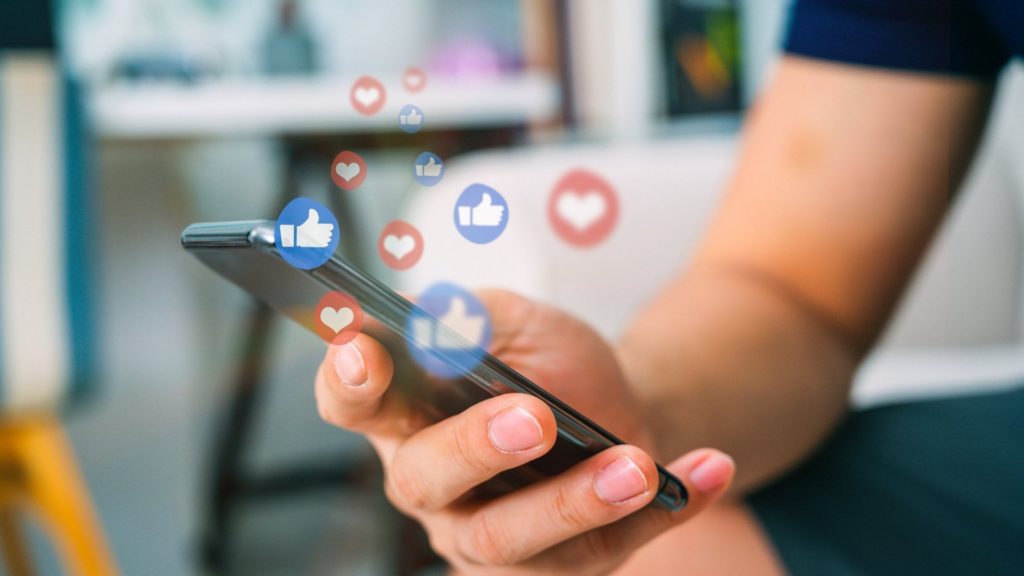Crystal Lum spends eight hours a day on Instagram and Twitter. The UMKC health sciences major said she has integrated social media into her daily routine, so much so that it feels “weird” to go without it.
Lum’s story isn’t unique. In fact, CNN reported in 2019 that 29% of teens and young adults spend eight or more hours on screens each day, while 62% spend more than four hours a day looking at screens.
Dr. Ricardo Marte, an associate teaching professor at UMKC, said studies often find a correlation between social media usage and mental health.
“A better way to conceptualize the relationship is to consider ways that social media use interacts with a person’s individual characteristics or may contribute to the overall context of a person’s life, which then influences their mental health,” said Marte.
Lum says she thinks social media can impact mental health because users are constantly compared to others which can “really affect your mindset.” She also said that it might even influence how someone presents themselves and sets goals.
“One possible association between social media use and depression may derive from the social comparisons we make between our experiences and those shared by others who post on social media,” Marte said, echoing Lum’s feelings.
To further support this claim, Marte pointed to a 2021 study published in the Journal of Personality and Social Psychology. The study examined 213 psychology students to see if they were making comparisons about the social media posts they had consumed on Facebook and Instagram. Using this information, researchers then studied how the participants’ self-esteem changed based on the social media consumed. The results showed that participants with low self-esteem felt worse about themselves after making social media comparisons.
“Social media can make you feel inadequate about your appearance or lifestyle which can make you feel lonely, depressed, or less worthy,” said Shivani Patel, who is pursuing her master’s degree in business administration.
Other students at UMKC said they also experienced this high level of comparison as a result of social media.
“The constant comparison of oneself to others becomes much easier with social media, and that has created negative mental health outcomes.” said Luke Hoffman, a sophomore political science major.
Naomi Shaffer, president of UMKC’s Alpha Sigma Alpha chapter, said she enjoys using social media as a creative outlet, but she sometimes finds herself questioning her content or paying more attention to the number of likes and comments.
“Based on the research, consumers of social media, including young adults, should keep in mind that the content we see online is not an accurate representation of the lives of those who are posting the content,” said Marte.
The narrative that teens are addicted to their phones is not a new one. In 2016, a poll suggested that half of teens felt like they were addicted to their phones. Marte suggests considering ways to reduce reliance by finding times to turn off your phone, disabling notifications during class, limiting the number of platforms you use and using certain platforms for specific purposes. If students are bored, anxious, or lonely, they should consider what is feeding those emotions and address those directly.
“If you are bored with the lecture in your class, taking out your phone isn’t going to help your grades if it leads you to miss information,” said Marte.
If students enjoy simply browsing social media, Marte says using that activity as a reward for completing tasks throughout the day can lead to a healthy balance.
Marineth Ordinal, a business major who uses social media for her student organizations, said she felt differently. Ordinal said she enjoys social media because certain content can help her get motivated for the day and seeing the world through different lenses can make people optimistic for the future.
“Using social media makes me feel free,” said Ordinal. “I have the creative freedom to do whatever and share my thoughts and opinions.”
While there can be drawbacks to social media dependency, Ordinal says the pros outweigh the cons.
ljtmfm@umsystem.edu








